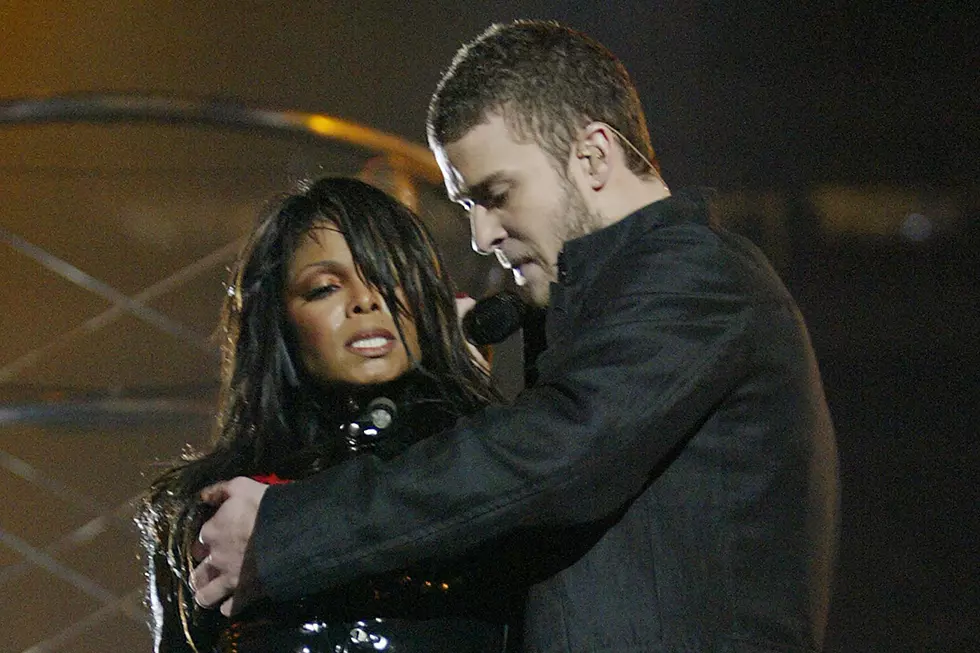
Justin Timberlake, the Invention of Whiteness and Willful Ignorance
*Note: This essay was originally published on June 28, 2016
At the 2016 BET Awards, Jesse Williams, the Grey’s Anatomy actor who earned the Humanitarian Award for his ongoing work as an activist and outspoken advocate for civil and human rights, gave a nearly six-minute speech that brought the audience to a rousing standing ovation and was lauded across social media.
Among the targets of criticism in Williams’ speech was the institutional and cultural privilege of whiteness, and how it has exploited black people for as long as it has been in contact with black people.
"We're done watching and waiting while this invention called whiteness uses and abuses us, burying black people out of sight and out of mind while extracting our culture, our dollars, our entertainment like oil, black gold, ghettoizing and demeaning our creations then stealing them; gentrifying our genius and trying us on like costumes before discarding our bodies," he said.
That particular passage proved to be quite apropos at the BET Awards; the show—and others like it—exists both to celebrate black achievement on black terms and to provide a platform for art and entertainment that is routinely marginalized or ignored by mainstream (i.e. white) platforms. And the point he was making came into sharp relief after pop superstar Justin Timberlake tweeted kudos for Williams’ words.
“@iJesseWilliams tho...#Inspired #BET2016,” read Timberlake’s initial tweet. One user responded to Timberlake’s praise with a pointed reference to the singer’s own history.
“So does this mean you're going to stop appropriating our music and culture? And apologize to Janet too. #BETAwards,” read the tweet.
“Oh, you sweet soul. The more you realize that we are the same, the more we can have a conversation,” was Timberlake’s response. “Bye.”
His words led to sharp dismissals from followers who said he missed the point of the speech and of criticism. He again tried to defend his tweets.
“I feel misunderstood. I responded to a specific tweet that wasn't meant to be a general response. I shouldn't have responded anyway...” Timberlake tweeted. “I forget this forum sometimes... I was truly inspired by @iJesseWilliams speech because I really do feel that we are all one... A human race.
“I apologize to anyone that felt I was out of turn. I have nothing but LOVE FOR YOU AND ALL OF US.
--JT.”
In his speech, Williams referenced those who decide it's their place to tell oppressed people how to best address said oppression. "If you have a critique for the resistance, for our resistance, then you better have an established record of critique of our oppression," Williams demanded. "If you have no interest in equal rights for black people, then do not make suggestions to those who do. Sit down."
As Black Lives Matter protests mobilized around the country in places like New York City, Florida, Milwaukee, Atlanta and Ferguson, MO; as recording artists like Killer Mike, Beyonce, Usher, John Legend and even Macklemore added their voices, to varying degrees and in a myriad of ways, to the national conversation on race in America, Justin didn't join in that conversation. Aside from a song dedication to Travyon Martin during his "Legends of the Fall" tour with Jay Z, Mr. Timberlake chose to keep himself out of the fray. When artists like the aforementioned Macklemore, as well as Iggy Azalea and Robin Thicke, came under criticism for appropriating black culture; the former N*Sync star never offered a perspective. There is one problem of trying on black art without investing in black culture; there's another problem of trying on black outrage without investing in actual progress.
And that isn't a plea for musical missionaries, invading black communities armed with white savior complexes; but it is a recognition of those with status and how they can work to either amplify or, at the very least, not downplay, the grievances of oppressed people. Especially when those grievances are apparent in criticism of your own behavior.
When Justin Timberlake offered empty applause to Williams' powerful words only to make it clear that he didn't fully recognize or accept the significance of those words, he was participating in the same ritual that led white kids to push Public Enemy's sales past the multiplatinum mark but who didn't understand the role that they themselves played in perpetuating the circumstances Chuck D railed against in his lyrics. Don't clap for me and then go back to pandering to the status quo that made you--you didn't hear me.
And most importantly, you are deluding yourself. Justin Timberlake needs to believe that he's not part of the problem. Which is why he defaulted to defense when his own problematic position was challenged. This happens often when those in positions of power and influence--in this case, white pop stars--have to look inward in regards to how they got those positions.
Last year, Miley Cyrus sparked a bitter war of words between she and Nicki Minaj after Cyrus dismissed Minaj’s criticisms of racial bias regarding what female artists get nominated for which awards. Minaj believed that MTV preferred to celebrate white female pop stars and didn't appreciate the significance of her video "Anaconda" and it's embrace of curvy brown bodies. In an interview with the New York Times in the lead-up to Cyrus’ highly-publicized gig as host of the 2015 MTV Video Music Awards, Cyrus chastised Minaj, offering her thoughts on the better way to “make it about race” and downplaying how bias informs things like nominations.
“If you want to make it about race, there’s a way you could do that. But don’t make it just about yourself. Say: ‘This is the reason why I think it’s important to be nominated. There’s girls everywhere with this body type.’
What I read sounded very Nicki Minaj, which, if you know Nicki Minaj is not too kind. It’s not very polite. I think there’s a way you speak to people with openness and love. You don’t have to start this pop star against pop star war. It became Nicki Minaj and Taylor [Swift] in a fight, so now the story isn’t even on what you wanted it to be about. Now you’ve just given E! News 'Catfight! Taylor and Nicki Go at It.'
I know you can make it seem like, Oh I just don’t understand because I’m a white pop star. I know the statistics. I know what’s going on in the world. But to be honest, I don’t think MTV did that on purpose.”
However you may have felt about Nicki and "Anaconda," Miley's response was condescending. Cyrus is a star who has wallowed in superficial blackness as she's evolved past her days as Hannah Montana; but instead of recognizing and acknowledging how Minaj's commentary is as necessary she and Swift pontificating on rights for women or the LGBTQ community, Miley policed the rapper for not being "nice" enough in demanding change. Were any of Miley's rocker icons i.e. Joan Jett ever "nice" when calling out sexism? Why should anyone softsoap racism--other than to make you feel better about playing to it?
Unlike Miley's reaction to Nicki, Justin Timberlake’s response to Jesse Williams’ speech wasn't to criticize, but his response to his own critics revealed a similar arrogance. JT didn’t have to go beyond his initial Questlove co-sign; he wanted to add his voice to the chorus. But what the pop star chose to willfully ignore was how that voice was infinitely secondary to who Jesse was speaking for and to; he seemed to be annoyed that he got anything but praise for showing that he "gets it." And in his defensiveness after being taken to task for his own role in contemporary cultural appropriation, he exemplified the very issue he was proclaiming to stand in solidarity against.
The ever-so-earnest musings of Macklemore in his controversial single "White Privilege II" attempted to juggle all of the elements to the racial dynamic in pop music and the greater culture--and the results were mixed, to be generous. But there is something to be said for engaging and not running from a conversation that will force you to examine the way you, as a white star in black aesthetics, has gained a lot from not being black. Macklemore tried to explain this in an interview with NPR after his song’s release.
“It started with being silent, for a long time, around these issues — in a social setting, not wanting to mess up," he admitted. "And realizing that I can do a tweet, I can do an interview, but the greatest tool that I have as an artist is to make a song. That is where my platform extends the longest. So, in making a song about race, or about police brutality, or about white privilege or white supremacy or cultural appropriation, where do you start? And I wanted to start with me showing up at a protest in a place of fear, thinking about myself too much, not knowing if it was OK to say "Black Lives Matter" at that exact moment. That's where this record came from: "How can I engage in this discussion knowing that I will benefit, knowing that this is co-opting, but [that] I still want to say something?
"Inherently, the system in which the song operates is flawed. Inherently, my place in talking about this is going to have contradictions. How do I do this from an authentic place, knowing that it should be called out, knowing that it is never going to be perfect, but knowing that, at the end of the day, it's more important for me to say something than to remain silent?”
There is a consistent and cloying sense of entitlement in the way so many people of affluence address marginalized groups--no matter how "well-intentioned." This isn't a case of "just stay silent," and it shouldn't be framed as such if one is sincere in their commitment to breaking through the conditioning of race and racism. It's an issue that superficial "amens" can't fix; white privilege and it's tendency to center itself in both perspective and commentary. Whether it manifests as silence, denial or willful ignorance, the symptoms are all evidence of the same sickness.
So, Justin Timberlake needs to face the reality of his legacy as a hitmaker who has black producers, sounds and collaborators to thank for how he shook off the stigma of early 2000s boy band-ism to become a credible and era-defining artist. And he shouldn't just hope for "Down-ass White Guy" props for giving a hollow thumbs-up. Whiteness is a construct that is designed to keep you on a certain plateau. Don't offer "we're all the same" when you know the scales are different for people who don't look like you. Shout down anyone who suggests that the cards aren't stacked in your favor.
And yeah, dude--apologize to Janet. Louder.
Watch Jesse Williams' Acceptance Speech at the 2016 BET Awards:
More From 107 JAMZ










